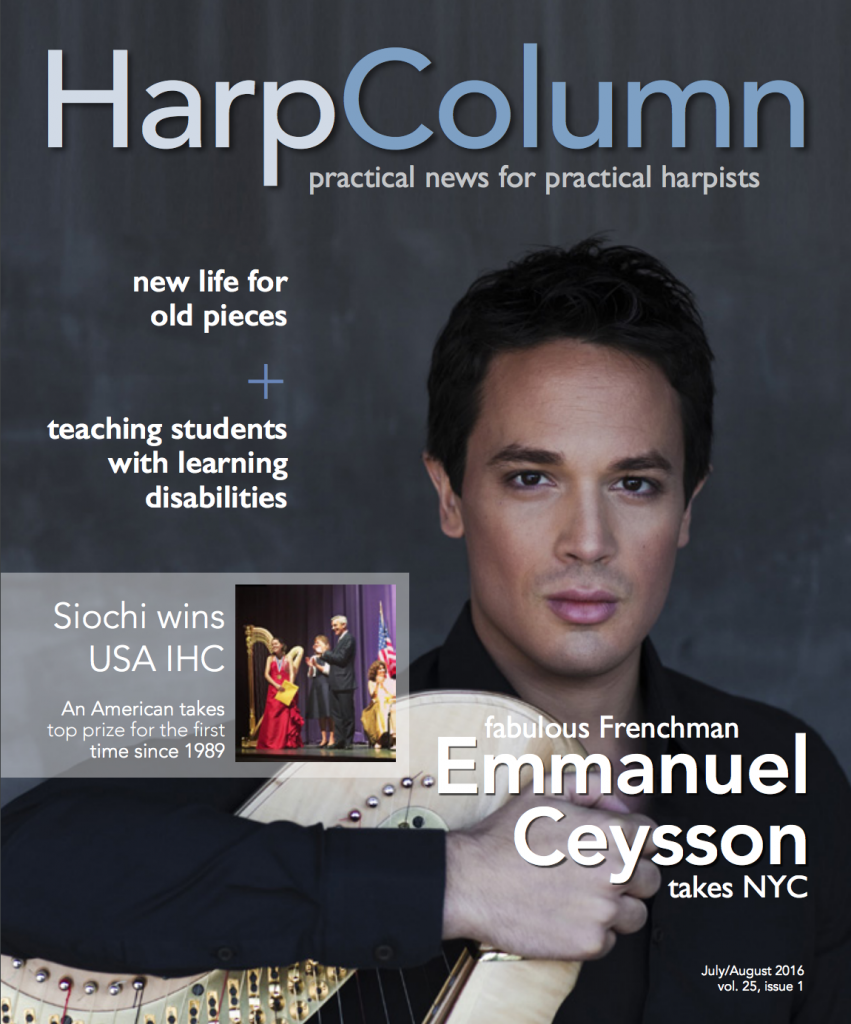Several weeks ago, while I was anxiously awaiting the livestream of the USA International Harp Competition (IHC) finals on the internet, a friend (a non-musician) asked, “So this is like the Superbowl of harp?”
Well, yes, sort of. It’s one of our biggest competitions with some of our best young talents. But it’s also nothing like the Superbowl. This is music and artistry judged subjectively by a jury, not a sport where the winner is determined by an objective number of points scored. It got me thinking about how incongruous the two pursuits of competition and music can be, yet how intertwined the two are in our training and in our society.
We’ve managed to make a competition out of just about everything these days—largely thanks to reality television. From remodeling houses to singing to baking cupcakes (really, Food Network, Cupcake Wars?), there is a reality show competition for just about every hobby, skill, and party trick out there.
I suppose we should count ourselves lucky that reality TV hasn’t come knocking on the harp world’s door. So far, the TV competition factory has left classical music relatively untouched. Evidently there’s not much of a market for America’s Next Top Harpist hosted by Tyra Banks.
Though harp competitions aren’t on the pop media’s radar, they play a big role in the our little world. And there is good reason for their prevalance in the music world. Preparing and performing carefully selected required repertoire at a high level can help a harpist grow in ways no other experience can.
Don’t take my word for it, though. Some of the harpists in this year’s USA IHC told us their reasons for dedicating two years of their lives to train and compete in one of the harp world’s most elite contests in Behind the Scenes.
Competitions can test your limits. “I think that we all prepare for this competition in order to know where we could arrive, what we are able to do, and to surpass what we think are our capacities and abilities,” said Italian harpist Arianna Rossi.
Competitions can improve your skills. “Preparing for such a renowned competition also pushes you in so many ways, whatever it be, in terms of memory, stamina, discipline, or mental strength,” noted British harpist Elizabeth Bass.
Competitions can be the realization of a long sought-after goal. “It was always my dream to compete in the USA IHC,” said Lithuanian harpist Aisté Baliunyté.
Competitions are hard, and doing something because it’s difficult is a simple, but powerful motivator (think climbing Mount Everest). Russian harpist Maria Mikhaylovskaya said she decided to compete simply because “…it is the most difficult and interesting competition.”
With as many worthwhile reasons as there are to compete, there are just as many bad reasons. Competing solely for the money or prizes or fame or recognition will usually leave you unsatisfied and can even blind you to all of the positive intrinsic rewards that can come out of the experience. And it’s not just the people finishing in second place and lower that can feel this way. If you are competing for the wrong reasons, you can be left with disappointment even after winning. Again, don’t take my word for it, ask Emmanuel Ceysson, the 2004 winner of the USA IHC and 2006 ARD Munich competition. In our interview with him, Met his Match, Ceysson cautions aspiring competitors.
“[Competing] can be good motivation…but at some point in life it also becomes destructive. It took me years and several competitions to realize that because I always thought that competition would open the door to a huge international career as a soloist,” he said. “As much as we would like to believe in this dream, it’s not very true, unfortunately.” But he went on to point out, “It does not mean that it’s not good to take part in the competitions, you just need to take them for the good reasons.”
Now that’s some winning advice. •







